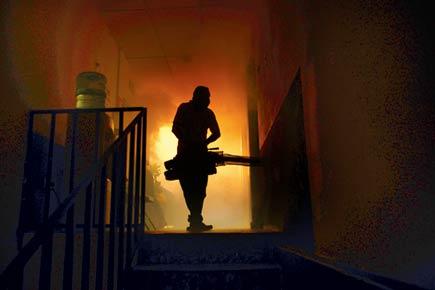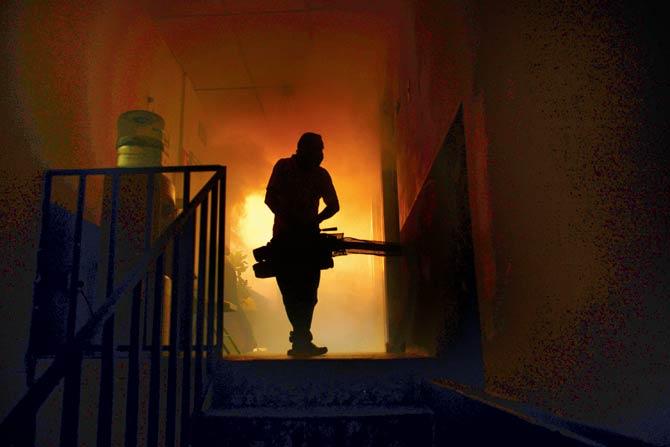World Health Organization to hold emergency meeting on February 1 to decide if the outbreak qualifies as an international health emergency

Geneva: The Zika virus, blamed for a surge in birth defects, is “spreading explosively”, the World Health Organization chief Margaret Chan said yesterday, calling for an emergency meeting on the outbreak on February 1.
ADVERTISEMENT

A Health Ministry employee fumigates a home against the Aedes aegypti mosquito to prevent the spread of the Zika virus in Soyapango near San Salvador. Pic/AFP
Zika “is now spreading explosively,” Chan told a meeting of WHO member states in Geneva. “The level of alarm is extremely high,” she added, calling for a February 1 meeting to determine if the outbreak qualifies as an international public health emergency.
America
The US is gearing up to fight the dangerous Zika virus as President Barack Obama calls for development of vaccines and therapeutics to fight the deadly mosquito-born infection.
One case of the Zika virus has been identified in Arkansas and another in Virginia, Center for Disease Control said, adding that one case was also confirmed in a girl in California, but she has since recovered.
Honduras
Honduras has registered 1,000 cases of the mosquito-borne Zika virus since December, which has been linked to a rise in birth defects in Brazil, Deputy Health Minister Francis Contreras has said.
Although Contreras did not mention any cases of infants born with microcephaly, or abnormally small heads, he did say that an elderly man may have died after contracting the virus. Between January 1 and Wednesday, 949 Zika cases were reported, with authorities being alerted to 51 other cases in December, Contreras said on Wednesday.
Brazil
Brazilian President Dilma Rousseff called for Latin America to launch a region-wide fight against the Zika virus, blamed for a surge in brain-damaged babies, as alarm rose over the world’s latest health scare. Brazil has been the country hardest hit by the outbreak of the mosquito-borne virus, which is blamed for a sharp rise in infants born with microcephaly, or abnormally small heads.
 Subscribe today by clicking the link and stay updated with the latest news!" Click here!
Subscribe today by clicking the link and stay updated with the latest news!" Click here!







